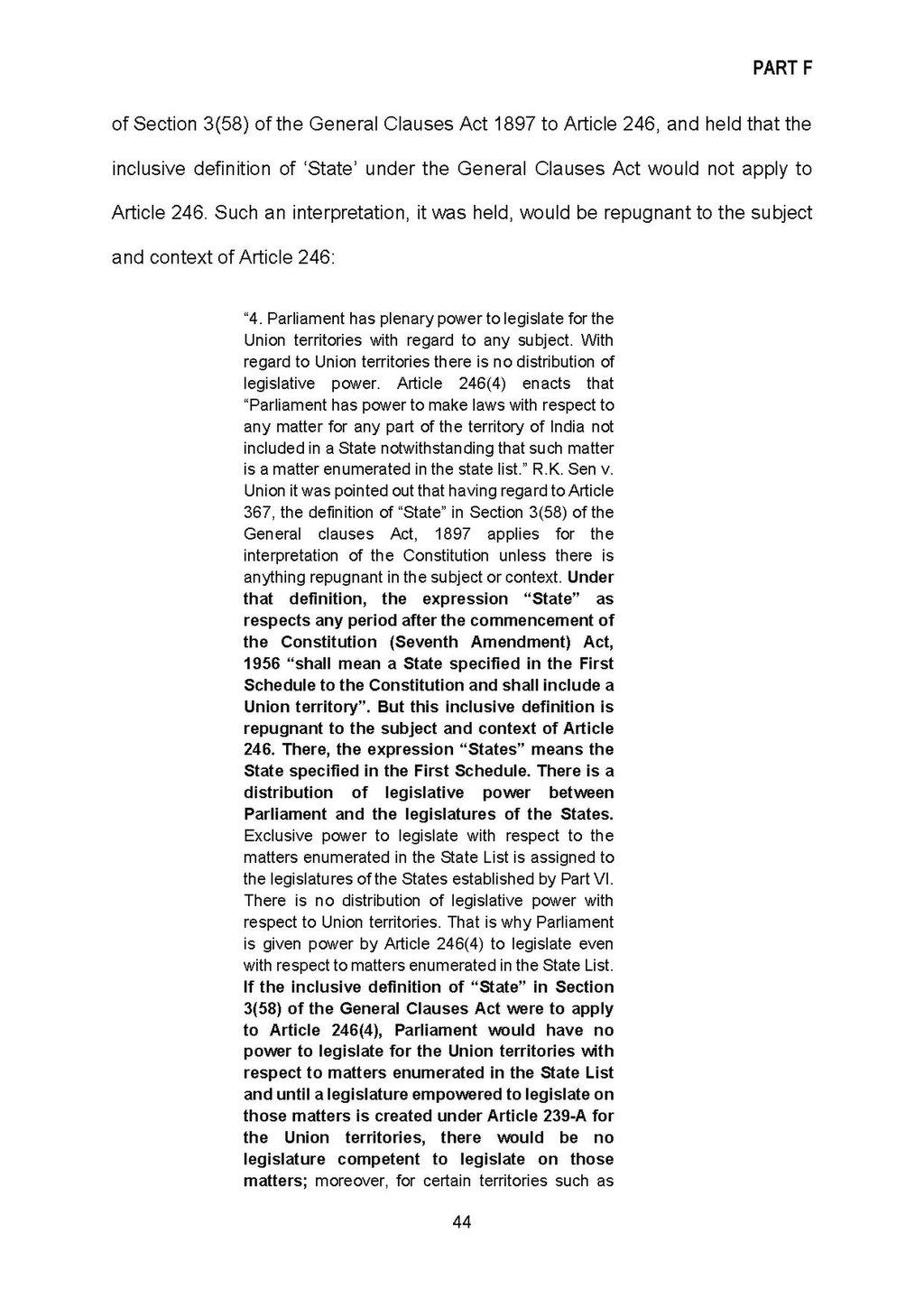of Section 3(58) of the General Clauses Act 1897 to Article 246, and held that the inclusive definition of ‘State’ under the General Clauses Act would not apply to Article 246. Such an interpretation, it was held, would be repugnant to the subject and context of Article 246:
“4. Parliament has plenary power to legislate for the Union territories with regard to any subject. With regard to Union territories there is no distribution of legislative power. Article 246(4) enacts that “Parliament has power to make laws with respect to any matter for any part of the territory of India not included in a State notwithstanding that such matter is a matter enumerated in the state list.” R.K. Sen v. Union it was pointed out that having regard to Article 367, the definition of “State” in Section 3(58) of the General clauses Act, 1897 applies for the interpretation of the Constitution unless there is anything repugnant in the subject or context. Under that definition, the expression “State” as respects any period after the commencement of the Constitution (Seventh Amendment) Act, 1956 “shall mean a State specified in the First Schedule to the Constitution and shall include a Union territory”. But this inclusive definition is repugnant to the subject and context of Article 246. There, the expression “States” means the State specified in the First Schedule. There is a distribution of legislative power between Parliament and the legislatures of the States. Exclusive power to legislate with respect to the matters enumerated in the State List is assigned to the legislatures of the States established by Part VI. There is no distribution of legislative power with respect to Union territories. That is why Parliament is given power by Article 246(4) to legislate even with respect to matters enumerated in the State List. If the inclusive definition of “State” in Section 3(58) of the General Clauses Act were to apply to Article 246(4), Parliament would have no power to legislate for the Union territories with respect to matters enumerated in the State List and until a legislature empowered to legislate on those matters is created under Article 239-A for the Union territories, there would be no legislature competent to legislate on those matters; moreover, for certain territories such as!,-- -->
44
